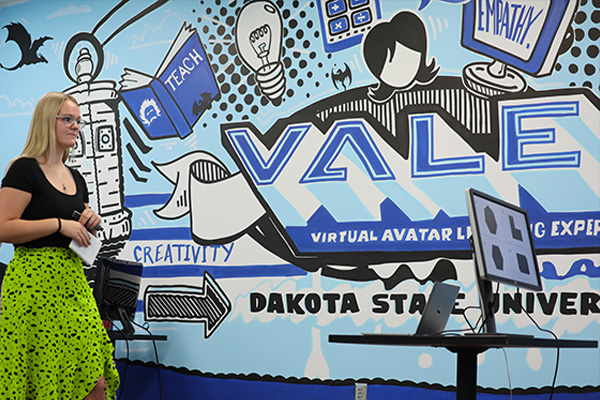Computer Science and Cyber Education Graduate Certificate
Program Quick Facts
Credits
18
Start Terms
Fall
|Spring
|Summer
Available
Online
Tuition
$10,795
estimated total cost
If you want to inspire the next generation of tech leaders, it starts with becoming one yourself. The Computer Science and Cyber Education Graduate Certificate allows you to build the skills and credentials needed to teach computer science in today’s fast-changing digital world. You will be empowered to lead in the classroom and shape the future of technology.
Whether you're a current teacher ready to bring computer science into your classroom or a career and technical education (CTE) instructor integrating technology into curriculum, this fully online program will give you the necessary tools. You’ll gain hands-on knowledge in key areas like cybersecurity, networking, programming, artificial intelligence, and ethics, so you can help students thrive in one of the fastest-growing fields.
Answer the call for cyber educators
There’s a nationwide shortage of qualified computer science teachers. According to the Computer Science Teachers Association (CSTA) 2022 survey, demand is growing rapidly, but many schools don’t have educators with the training and qualifications. This certificate helps solve that problem by preparing you to teach computer science and cyber courses in middle and high school classrooms.
Educators completing this certificate program will equip K-12 districts to offer dual-credit courses, AP computer science, and foundational programming and cybersecurity courses. You’ll feel confident implementing current computer science standards. You may also have the opportunity to teach in the Governor’s Cyber Academy at DSU—a statewide effort to expand cyber education and career pathways for students in South Dakota and beyond.
Why choose DSU
With the growing national demand for qualified computer science teachers, DSU has made it a priority to offer this program to educators across the country. The computer science and cyber education certificate is delivered entirely online, making it flexible and accessible no matter where you're located.
Designed to save you time and money, this program alone provides the credentials needed to teach computer science and stacks into DSU’s M.S. in Education and Technology program. It’s an efficient pathway that can enhance your role in workforce development and help meet the increasing need for computer science education.
This certificate does not lead to teacher certification in South Dakota in educational technology unless you already hold—or are eligible for—an elementary, secondary, or K–12 teaching certification.

Inspire the next generation of cyber leaders
The Governors Cyber Academy (GCA) at DSU is designed to expand awareness of cyber education and introduce students to meaningful career pathways in cybersecurity. This certificate program offers a professional development opportunity to enhance your teaching credentials, set you apart in a rapidly growing field, and qualify you to teach in the GCA. As an educator, you'll have the chance to network with other technology-focused teachers, gaining hands-on experience to inspire the next generation of cyber professionals.





